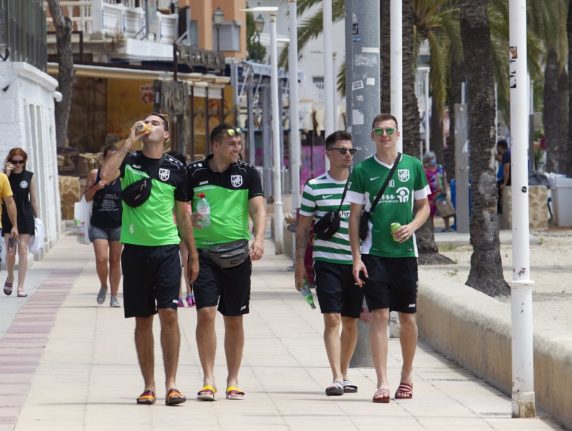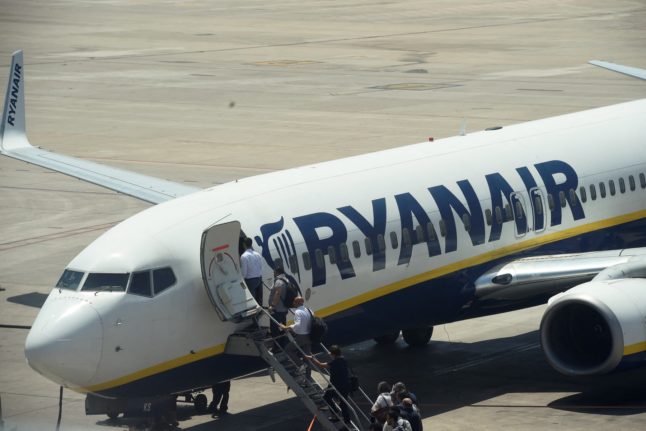A group of 11 restaurants in Palma de Mallorca in Spain’s Balearic Islands have introduced a dress code to try and deter poorly dressed tourists.
But is the dress code simply a case of well dressed Spaniards trying to smarten up the place, or is a broader reflection on the Balearic Islands and its changing model of tourism?
The restaurants, all members of the Palma Beach group, have introduced QR codes so that customers can scan and check the mandatory dress code, which they are calling ‘Smart Chic’.
Tourists learn that several items of clothing, often plentiful on beach holidays, are now banned, including tank tops, swimming costumes, fancy dress costumes such as those on stag or hen parties, and also accessories purchased for street vending such as novelty sunglasses, hats or wigs.
Nor can tourists enter the 11 restaurants dressed in gold chains, hats, football shirts or clothing with logos of branding of other businesses on the islands that promote drunken tourism.
READ ALSO: 13 mistakes tourists in Spain are bound to make
The crack down on lax clothing comes as part of a broader push to try and change the model of tourism the Balearic Islands offer.
Made up of Mallorca, Menorca, Ibiza, and Formentera, the Mediterranean archipelago is well known not only for its beautiful coastal resorts but also its booze tourism spots.
Long famous for cheap drinks, pub crawls, and booze cruises, tourists from across Europe have descended on the islands for cheap drunken fun for decades.
Magaluf on Mallorca, for example, is particularly popular with Brits and to a lesser extent Germans and other northern Europeans wanting a cheap, and very boozy, holiday in the sun.
Yet new rules cracking down on excessive drinking and disorderly behaviour on the islands are making that harder, with authorities attempting to change the Balearics’ image and model of tourism.
The new rules, which were originally introduced in January 2020 but rendered largely irrelevant due to the Covid-19 pandemic, are now coming into force as the summer season approaches, and include legislation banning 2-for-1, happy hour, and free bar offers, limiting the sale of alcohol between 9:30 p.m. and 8:00 a.m, banning new licenses for booze cruise style ‘party boats’ and limiting of alcoholic beverages to six per day in all-inclusive hotels.
The infamous tourist practice of ‘balconing’ – when drunken tourists launch themselves from balconies into swimming pools – has also been banned and will, according to the official government bulletin released in 2020, “expel with immediate effect” those partaking in the popular and often lethal activity.
READ ALSO: The new alcohol rules for tourists in Spain’s Balearic Islands
The new rules had, for a few months, made an impact on the profile of tourist arriving on the islands, hospitality leaders say, but the summer months have reversed the “extremely positive” trend detected in April and May, Juanmi Ferrer, CEO of Palma Beach, said, during which a tourist profile of greater purchasing power and willingness to enjoy the island’s gastronomical offerings arrived.
But that progress has been lost in the sun, it seems. “The situation is worse now than in 2017, 2018 and 2019,” said Ferrer, “we need support from the authorities because neither the businessmen nor the neighbours can stop it.”
The changes in the Balearics come amid broader debate in Spain about the role and model of tourism – it makes up around 13 percent of GDP – and how it aligns with the Spanish economy as it heads into the first non-COVID summer season and tries to recover from the pandemic. The new dress code in Mallorca is just one part of the broader pivot to a new type of tourism.



 Please whitelist us to continue reading.
Please whitelist us to continue reading.
Member comments